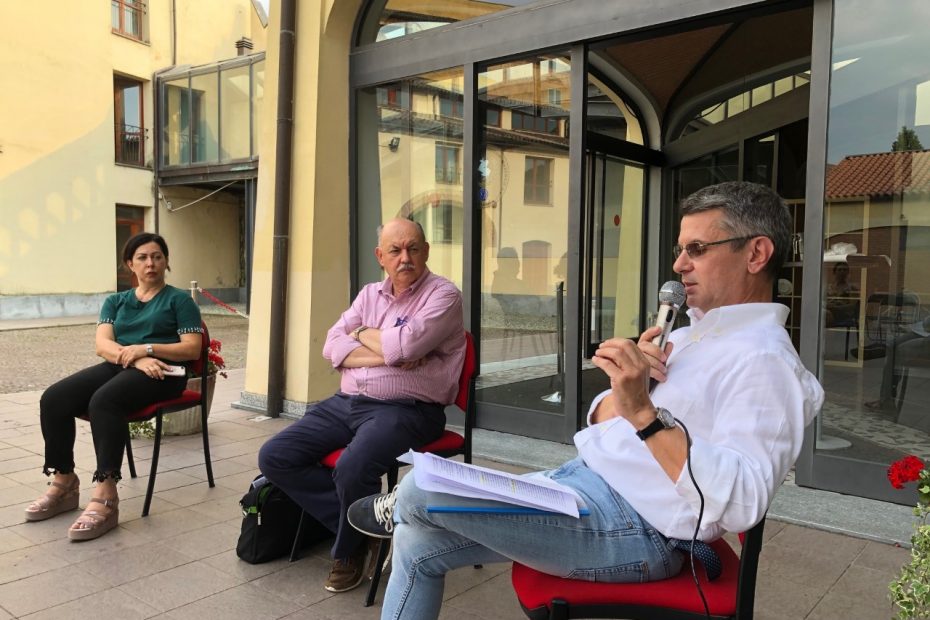The Marengo International Cultural Centre hosted the event “Rijeka – From Croatia a river of culture for the Mediterranean”, an important occasion in which we spoke of Rijeka (once known by the Italian name of Fiume), the second most important city of Croatia and European Capital of Culture 2020, and the influence of the territories of former Yugoslavia on the Mediterranean Sea.
The meeting was attended by Graziano Canestri (passionate about the history of the former Yugoslavia) Maurizio Lozzi (journalist, sociologist and recent winner of the National Prize Fiuggi with the story “Same blood”), Elisabetta Grossi (founding member of Conscom, which has always been involved in the world of artistic communication), Piercarlo Fabbio (former Mayor of Alexandria), with the moderation of Efrem Bovo of UJCE, the Union of European Journalists and Communicators.
The history of Alessandria intertwines with Croatia (it is twinned with Karlovac), a land of great cultural and literary wealth, renowned from a tourist point of view, but also proven by the lockdown anti-Covid because activities and events were suspended with serious economic consequences.
Rijeka, European Capital of Culture 2020, border area where different ethnic groups, Croats, Serbs and muslims lived together. Rijeka, a center of aggregation that has been recognized internationally, has moved the appointments to 2021. Canestri from the seat of Marengo (place of the victory of Bonaparte in 1800) recalled the Napoleonic period that lived Croatia, in particular the Treaty of Campoformio (1797) which abolished the Republic of Venice which, for years, had kept Croatia in check, and in 1815 the taking of Dalmatia to the Habsburgs.
Canestri continued his speech by recalling the literary and cultural development of Croatia with its four major representatives: Arino Darsa (playwright, poet and dramatist), Ljudevit Gay (protagonist of the Illyrian movement), August Senoa (prose and poet) and Miroslav Krleza (one of the most important writers of the Croatian literature of the ‘900).
Maurizio Lozzi stressed the richness of the many small realities of the former Yugoslavia, where natural and territorial beauty intersect, and a great historical and cultural heritage praised since ancient times, which constitute a beacon for the Mediterranean.
Piercarlo Faccio recalled, in his speech, the failure to respect the Pact of London (which did not provide for the assignment of the city of Rijeka to Italy) and the Charter of the Carnar, which saw the intervention of the poet Gabriele D’Annunzio, who landed with legionnaires in Rijeka and occupied it military. Fabbio then recalled a very curious and particular episode, the one in which D’Annunzio “bombed” the city of Vienna not with bombs but with paper leaflets through a plane piloted from Christmas Palli, aviator of Casale Monferrato.
